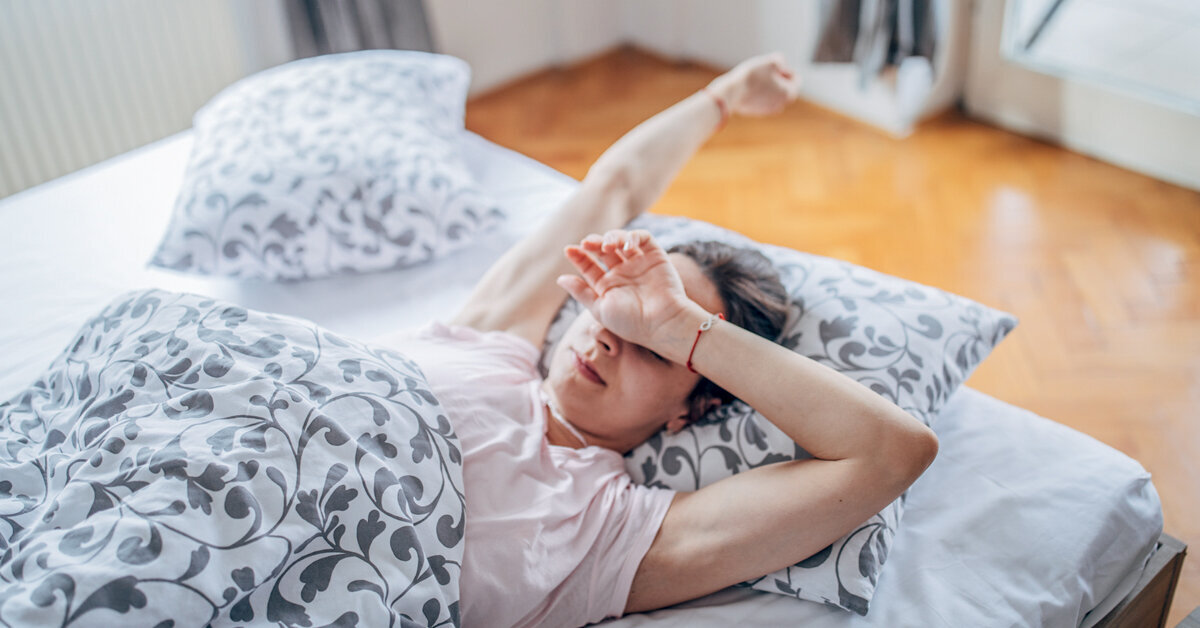The Art and Science of Sleep
The importance of sleep has become increasingly recognised as people’s lives get busier and ‘the balance’ harder to strike.
Research into sleep is expanding rapidly and widespread lack of sleep has been referred to by some scientists as a ‘public health crisis.’ Sleep is an essential reprieve from the hustle of daily life, and is as fundamental for good health as oxygen, food, and water. Without it, your mind and body cannot refresh and repair itself, and your mental and physical health will pay the price.
Why is it important?
Just like food and water, sleep is a basic human necessity. Sufficient sleep is essential for optimum health and influences all body systems. Lack of sleep, or sleep deprivation, can cause symptoms such as fatigue, poor concentration and memory, mood swings, slowed judgement and reaction time, poor coordination and weight gain.
With regards to exercise, good sleep can assist better technique and performance whilst excessive fatigue can put you at increased risk of injury. There is also evidence to show that exercise improves sleep quality and quantity, however for some people the timing may be important. Some people will find exercising too close to bedtime will have a negative effect on sleep, and should fit their exercise in earlier in the day.
How do we sleep?
The body’s internal clock regulates when, and how, we sleep. This depends on a number of factors. One factor is the amount of light you’re exposed to; when the sun sets, your brain releases hormones to make you feel sleepy, and in the morning, exposure to daylight suppresses these hormones which keeps you awake.
The amount of sleep you got the previous night/s can also change your level of fatigue, as does how long you’ve been awake for. The onset of sleep is out of your control, though you can try to create the right conditions for sleep both in your mind and environment. Once asleep, muscles will relax and breathing will slow, but the mind remains active dreaming, consolidating information from the day, and transferring it into long-term memory.
Sleep cycles
Each stage of the sleep cycle serves a physiological or neurological purpose, and are all equally necessary for a healthy body and mind. While asleep the human brain is constantly interpreting, filing, and consolidating information throughout the various stages of sleep.
During an average night’s sleep, an individual normally experiences 3-5 sleep cycles. Each cycle can be split up into 4 stages which include periods of REM (rapid eye movement) sleep and non-REM sleep. REM sleep is the only stage in which people dream.
Stage 1: light sleep, no REM (1-7 minutes)
Stage 2: light sleep, no REM (10-25 minutes)
Stage 3: deep sleep, no REM (20-40 minutes)
Stage 4: REM sleep (10- 60 minutes; lasts longer with each cycle).
The first sleep cycle lasts 70-100 minutes and later cycles are 90-120 minutes.
Deep sleep is vital for physical restoration and repair, hormone regulation and growth. In REM sleep, the brain processes memories and emotions, which is crucial for learning and higher-level thought. A lack of REM sleep (as may happen in frequently interrupted sleep or a short night’s sleep) leads to slower cognitive and social processing, problems with memory and difficulty concentrating. The recommended 7-9 hours of sleep ensures that these integral sleep cycles can be completed to enable optimum health and wellbeing.
Sleep disorders
There are a large number of sleep disorders that exist. Many of them are treated with lifestyle changes and occasionally treatment may require medication as well. Sometimes the sleep problem will be related to other health conditions. If you are experiencing sleep problems we strongly encourage you to see a medical practitioner or other suitably qualified health professional for assessment, advice and treatment as required.
Advice for getting a night of quality sleep
Even small lifestyle and environment adjustments can greatly improve your quality of sleep.
Reduce screen time and avoid it completely in the hour before sleeping
Reduce stress and anxiety
Participate in regular exercise
Create and stick to a regular sleeping schedule (even on weekends)
Create the right space - calm surrounds, dark room and comfortable temperature (ideal
is 18-20 degrees celsius)
Limit your caffeine intake, especially in the late afternoon or evening
Decrease tobacco and alcohol use
Eat well and avoid heavy meals right before bed
Can I nap?
The term “cat nap” actually describes the perfect amount of sleep to recover from fatigue and regain energy. However, it’s best to avoid resting for an entire sleep cycle as a small rest of 15- 20 minutes is proven to be more effective. Your body won’t suffer from the side effects of being woken from a deep sleep (grogginess and fatigue) because you can still be easily woken during the 15-20 minute stage of your sleep cycles.
REFERENCES
1. KLINE, C. E. (2014). THE BIDERECTIONAL RELATIONSHIP BETWEEN EXERCISE AND SLEEP. AMERICAN JOURNAL OF LIFESTYLE MEDICINE, 8(6), 375-379 DOI:10.1177/1559827614544437
2. BETTERHEALTH.VIC.GOV.AU. (2019). SLEEP EXPLAINED. [ONLINE] AVAILABLE AT: HTTPS://WWW.BETTERHEALTH.VIC.GOV.AU/HEALTH/CONDITIONSANDTREATMENTS/SLEEP.
3. DIVISION OF SLEEP MEDICINE HARVARD MEDICAL SCHOOL.(2019). HEALTHY SLEEP [ONLINE] AVAILABLE AT: HTTP://HEALTHYSLEEP.MED.HARVARD.EDU/HEALTHY/\\
4. LIN, S. (2019). 5 STAGES OF SLEEP & BRAIN WAVE CYCLES. [ONLINE] DR STEVEN LIN. AVAILABLE AT: HTTPS://WWW.DRSTEVENLIN.COM/FIVE-STAGES-OF-SLEEP-BRAIN-WAVE-CYCLES/.
AUTHOR: ELLIE GRIFFIN
DISCLAIMER
THE CONTENT PROVIDED ON THIS WEBSITE IS FOR EDUCATION AND INFORMATION PURPOSES ONLY. IT IS NOT INTENDED TO REPLACE INDIVIDUAL HEALTH PROFESSIONAL CARE. READ OUR FULL DISCLAIMER HERE

